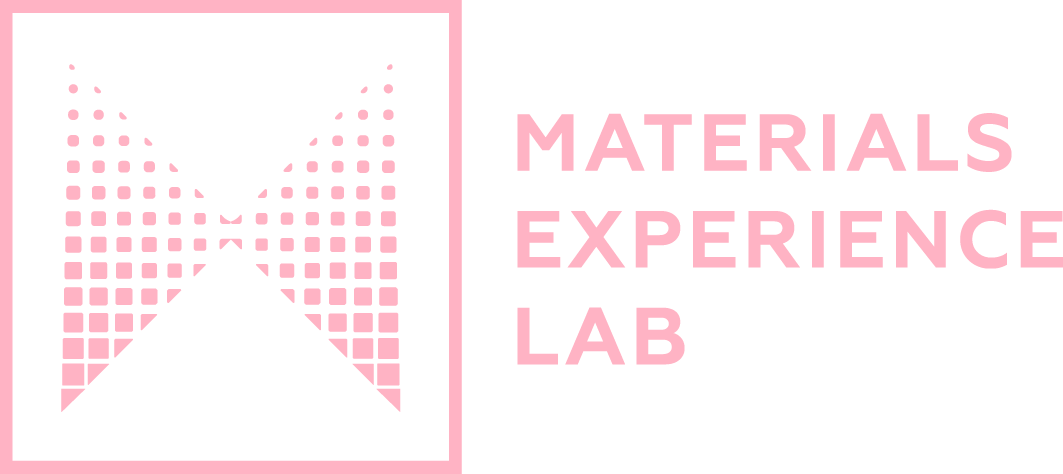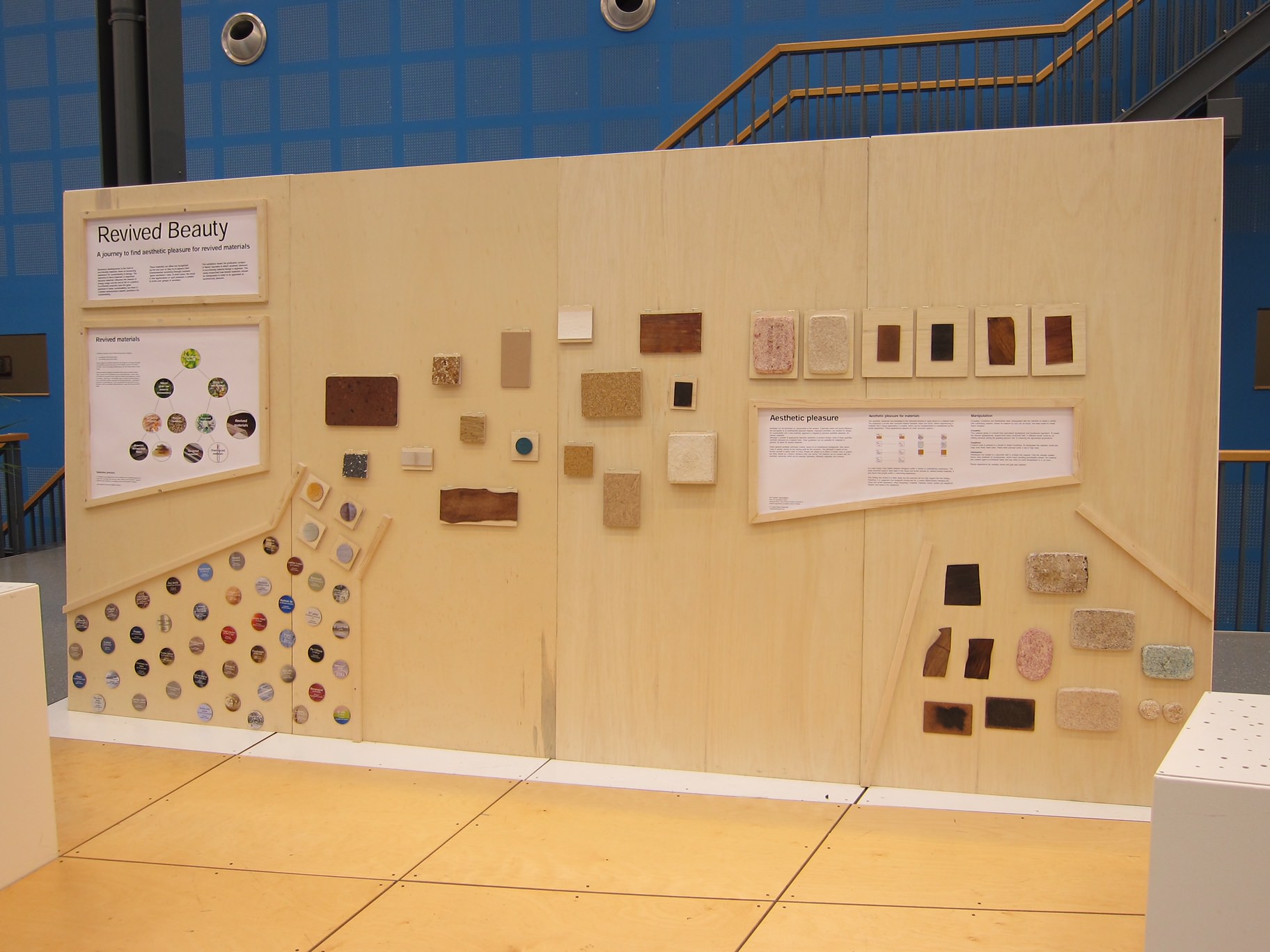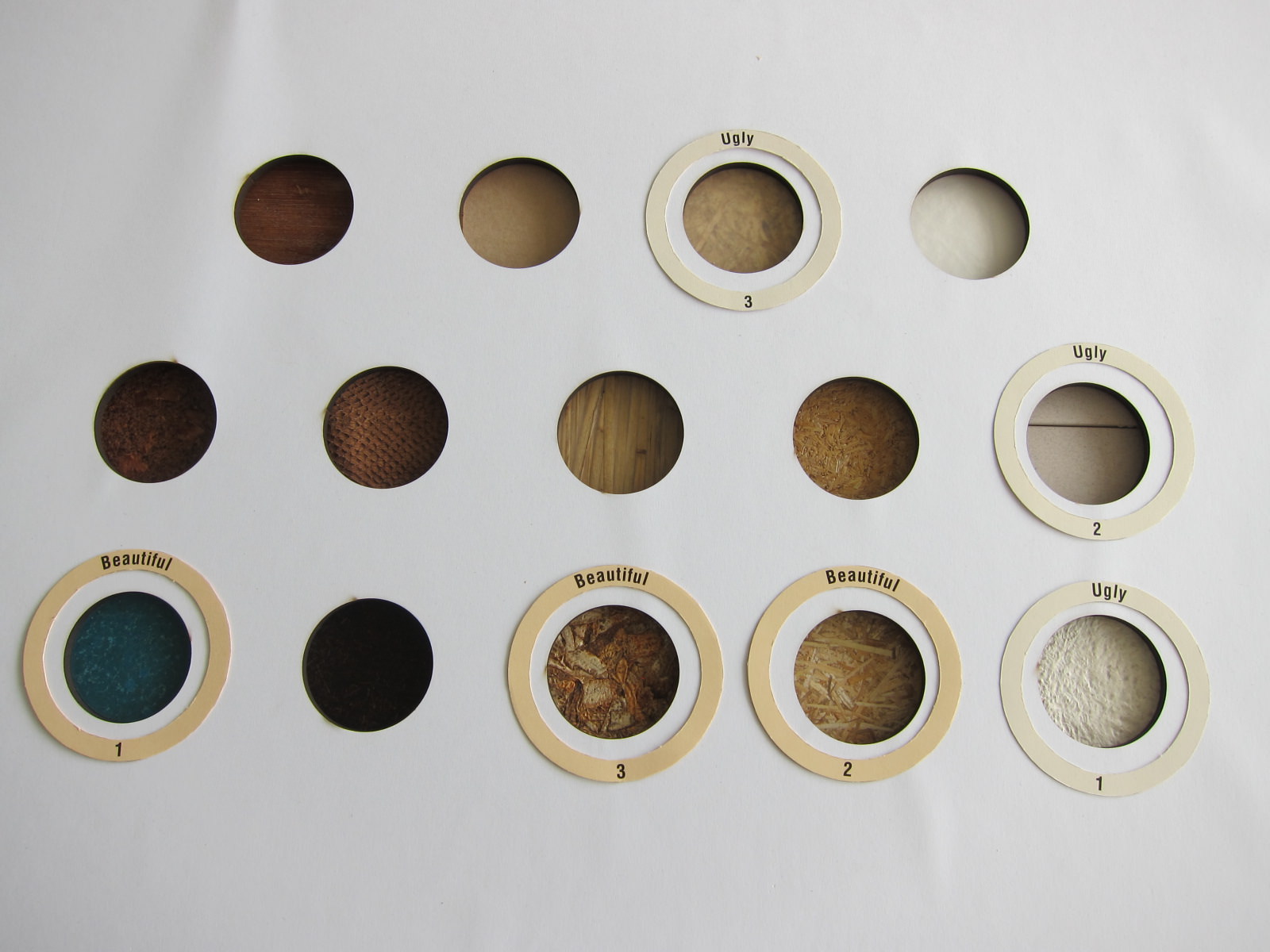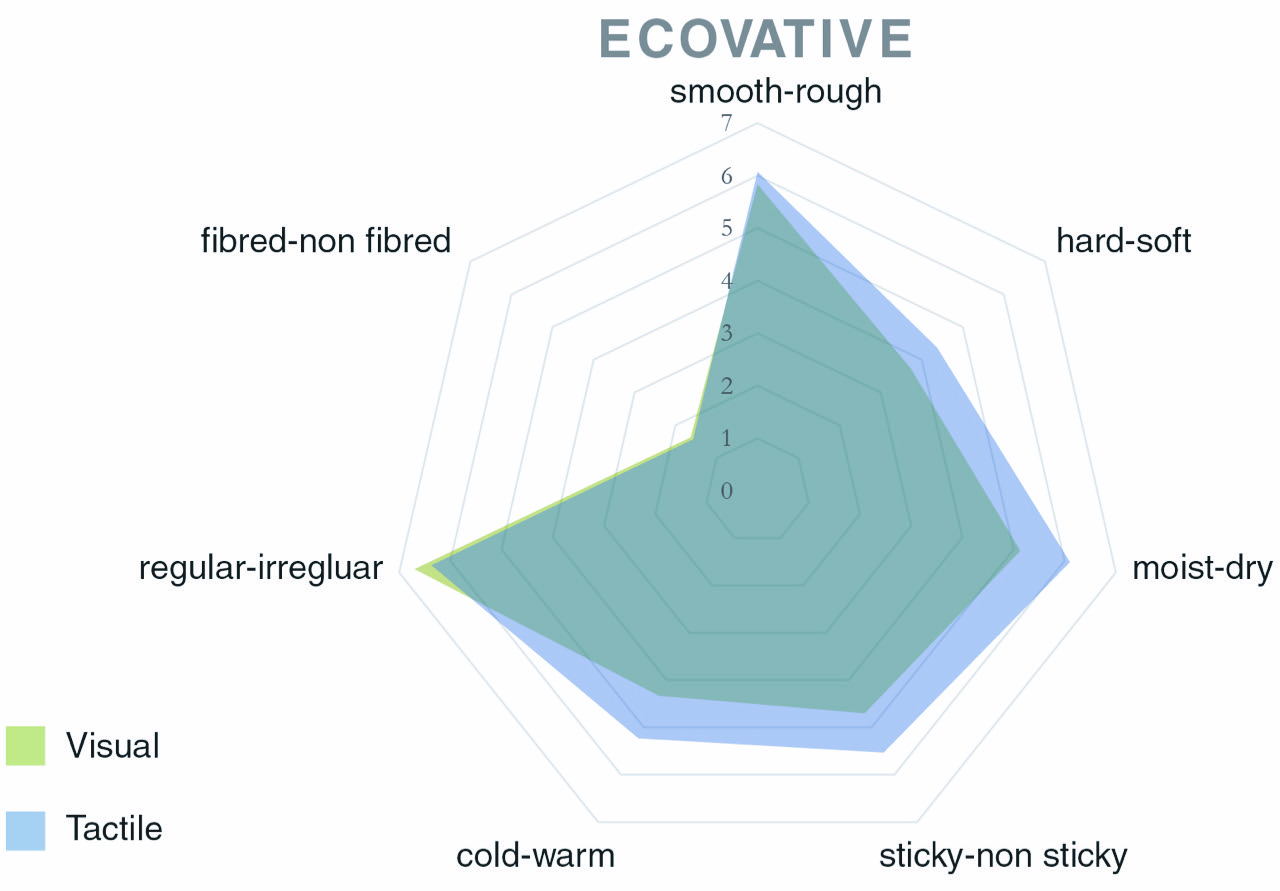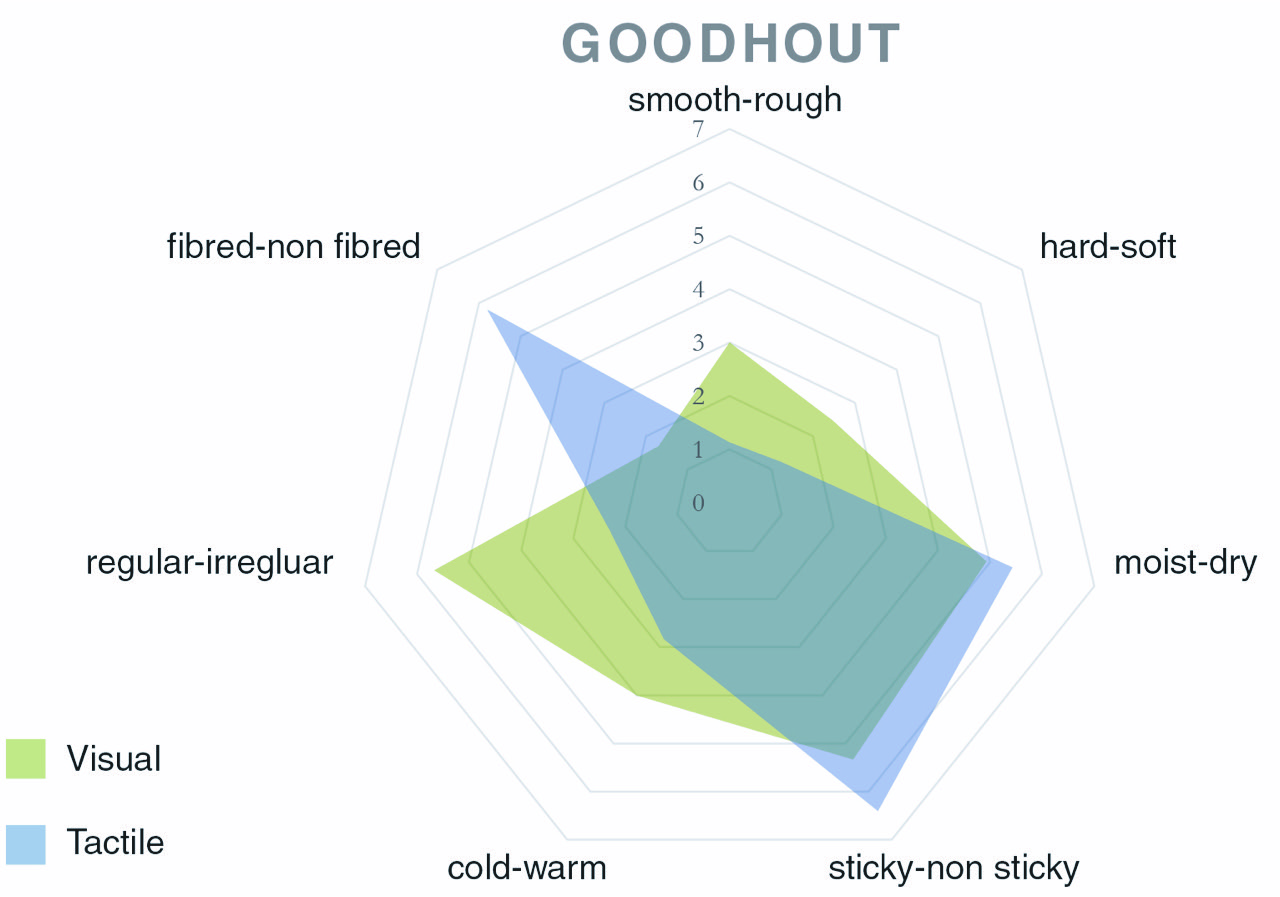Revived Beauty
Researching aesthetic pleasure in material experience to valorise waste in design, 2015
The use of materials derived from waste is one of the most prominent means to contribute sustainable product design. However, there is a stark gap in literature concerning how people appraise such materials. In this project, I focus on the aesthetic appreciation of materials, in particular those derived from discarded raw materials, i.e. revived materials.
Division of Eco-Friendly Materials
In a first attempt to find general principles for aesthetic pleasure in material design, universals from the aesthetic principle unity-in-variety were inter-sensorial investigated during two studies. In the first study I explored how different visual and tactile qualities interrelate with each other in a similar or contradictory way in material appraisals. In a second study I used these findings to manipulate two revived materials, i.e. Ecovative (a mycelium based material) and Goodhout (based on coconut fibres).
The outcomes of both studies were slightly ambiguous, but can be explained as following: Due to unfamiliar characteristics of materials we might dislike them; yet when this elicit positive surprise at the same time, we tend to like the material. Since revived materials are new unfamiliar materials to many of us, positive surprise could be the right design strategy to adapt in order to make them accepted by the end users.
The ultimate aim of this project was to support designers in understanding the experiential qualities of revived materials, because I believe that improved aesthetic qualities of such materials can help valorise these materials among a wider public.
Table of Revived Materials
